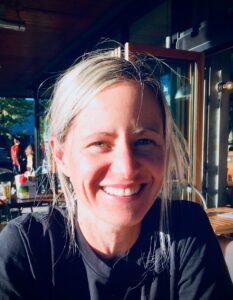Population Research Discovery Seminars

Scrutinizing the Science of Sociogenomics
Callie Burt, Associate Professor, Department Criminal Justice & Criminology, Georgia State University
Register for Zoom Seminar HERE
04/22/2022
12:30-1:30 PM PT
Co-Sponsor(s):
Sociogenomics is flourishing. More and larger genome-wide association studies (GWASs) are being conducted on complex social traits, and GWAS products in the form of polygenic scores (PGSs) are being employed in social science research to represent the ‘genetic influence on’ or ‘genetic propensity for’ social traits. However, social scientists’ abilities to interpret, evaluate, and utilize this scholarship is hampered by the field’s abstruse methods, which include advanced statistical genetic methodologies and a postgenomic biology that has passed most of us by. With the aim of elucidating the invariably overlooked assumptions and limitations of sociogenomics research, I scrutinize the methodology of GWASs and PGSs. After describing the general biological and statistical framework, I describe the correlative nature of genetic association studies and the persistence of environmental confounding, the extent and relevance of unknown biology, and the context- and population-specificity of GWASs and PGSs and what this implies for sociogenomics scholarship. I highlight the importance of recognizing that PGSs for complex social traits do not provide information about what can be (potential) but what is under current social arrangements. I conclude by considering the potential of sociogenomics research in light of these challenges.
Dr. Callie Burt is an Associate Professor of Criminology at Georgia State University. Burt’s research focuses on understanding the biopsychosocial mechanisms linking social inequalities crime and risky behavior from a life-course perspective, with a particular focus on socioeconomic and racial disparities. In prior research, she linked experiences of racial discrimination to increased risk of offending and, adopting a strength approach to African American families, highlighted the protective effects of familial racial socialization. She has a longstanding interest in sex differences and how these differences are shaped by gender as a social force. In ongoing projects, Callie investigates how social forces shape changes in impulsivity and sensation seeking during adolescence, building on recent work highlighting adolescence as a second sensitive period for change—one of vulnerability and opportunity.
Over the past several years, with support from NICHD, Burt has been training and researching in genomics, biostatistics, and social epigenetics. In ongoing projects, she scrutinizes social genomics scholarship, especially genome-wide association studies and polygenic scores, highlighting challenges and limitations to the incorporation of genetics into social science. More information on Burt’s bio, scholarship, and links to her blog can be found at www.callieburt.org.